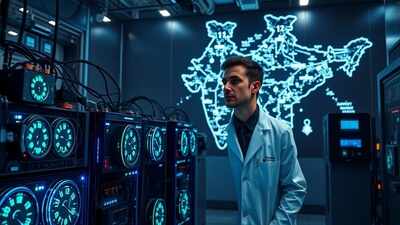ARTICLE AD BOX

NEW DELHI: Ahead of making the use of Indian Standard Time (IST) as the mandatory time reference for all legal, commercial, digital and administrative activities, the govt on Wednesday asked industry, stock exchanges, Sebi, banks and those dealing with critical infrastructure to discontinue use of alternative systems such as GPS.Consumer affairs ministry Pralhad Joshi told reporters that his ministry will soon come out with rules making IST mandatory, which is the “official and legal time of India”. This will secure India against cybersecurity vulnerabilities such as spoofing and jamming.The armed forces have been largely using IST with the time reference also used in Operation Sindoor, an official said. He added that GPS signals were denied to India during the Kargil War and also during the Mumbai terror attacks, in which terrorists were using satellite phones and the Intelligence Bureau had no information on how they were connected to foreign locations.“Time keeping in the country is still dependent on a foreign satellite like GPS and we want to move away from GPS. Timekeeper National Physical Laboratory (NPL) has an accurate time scale, which is of the order of a few nanoseconds with respect to the world time,” said senior NPL official Ashish Agrawal.The consumer affairs department, Isro and NPL have developed an indigenous timekeeping system, which includes five atomic clocks at different locations.
The initiative aims at delivering IST with millisecond to microsecond accuracy through five Regional Reference Standard Laboratories (RRSLs) equipped with the atomic clocks.Consumer affairs secretary Nidhi Khare said, “So far, we were dependent on external sources for time dissemination. We have Indianised the entire ecosystem of time and the department is now ready with the dissemination process.”This initiative will translate into more secure digital transactions, accurate billing in utilities, reduced cybercrime risks and synchronised timekeeping in transportation and communication. At present, several systems rely on foreign sources of time.



.png)
.png)
.png)
















 5 hours ago
4
5 hours ago
4









 English (US) ·
English (US) ·